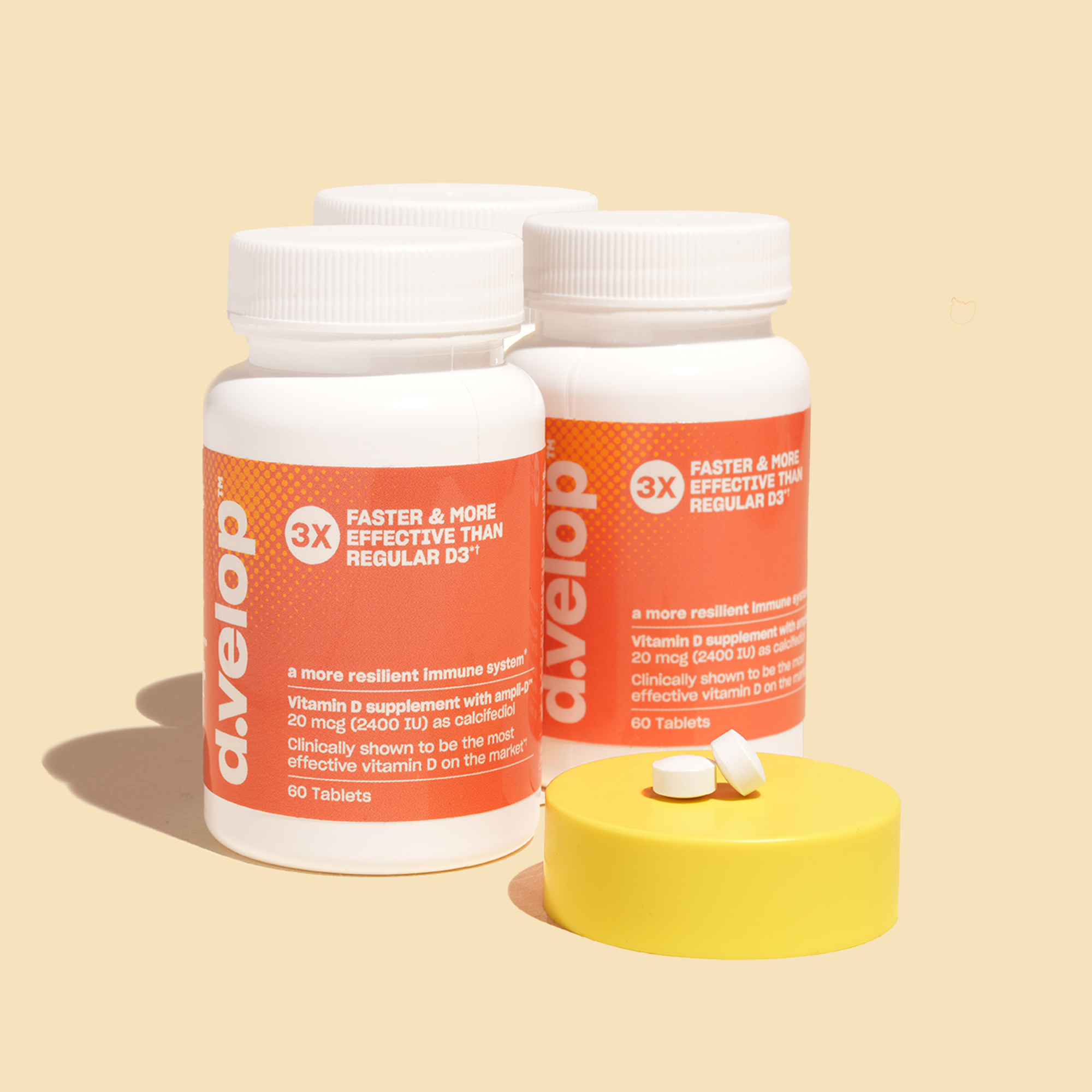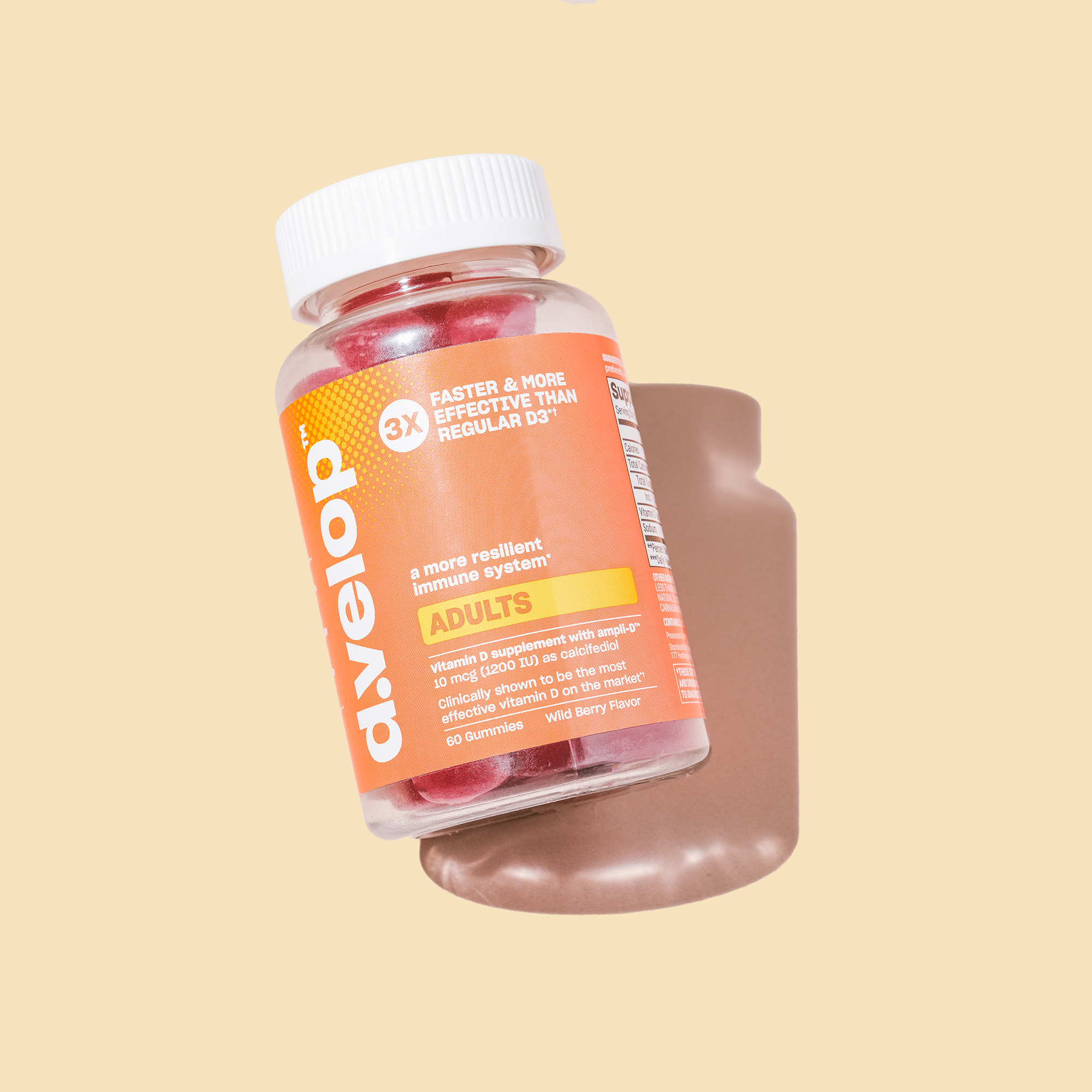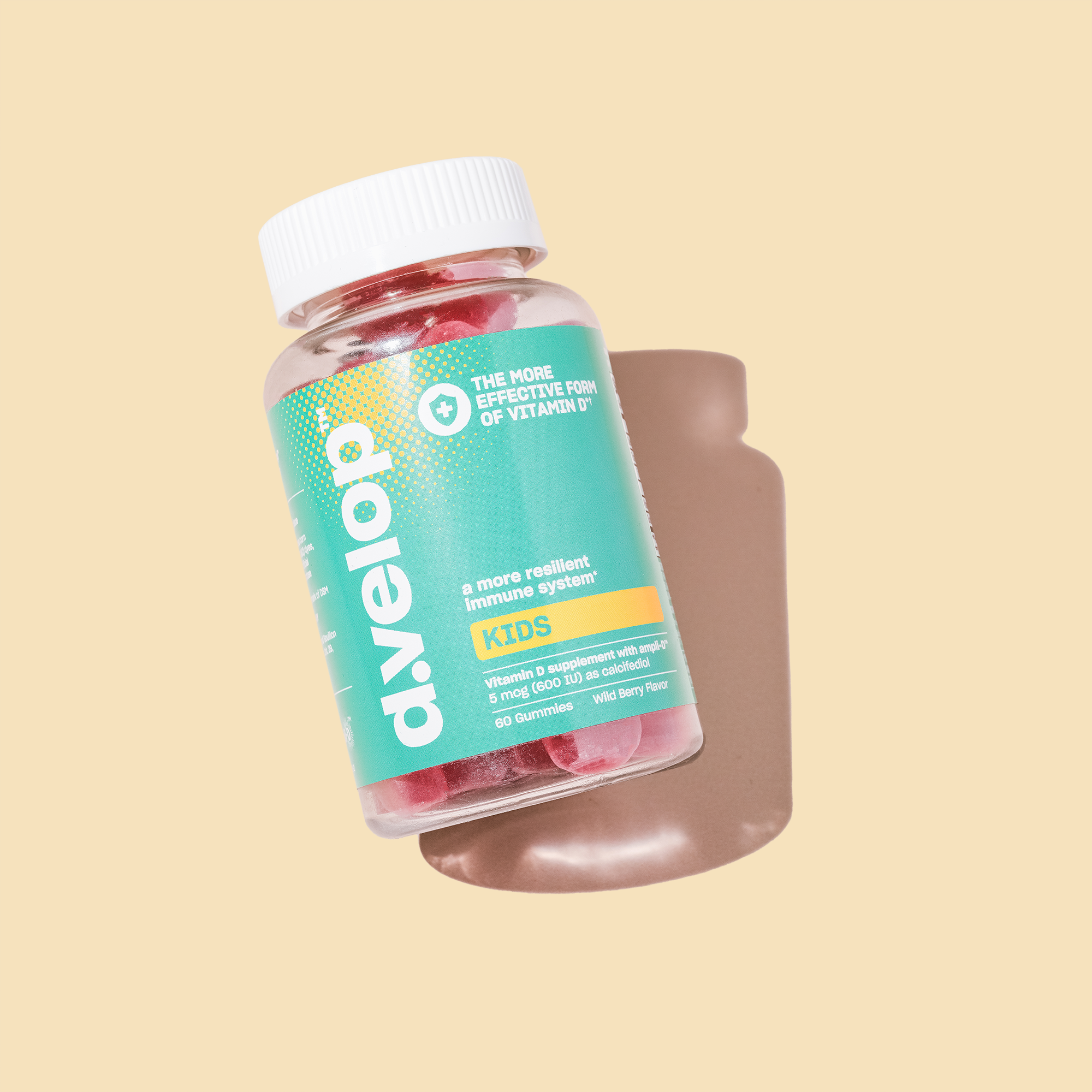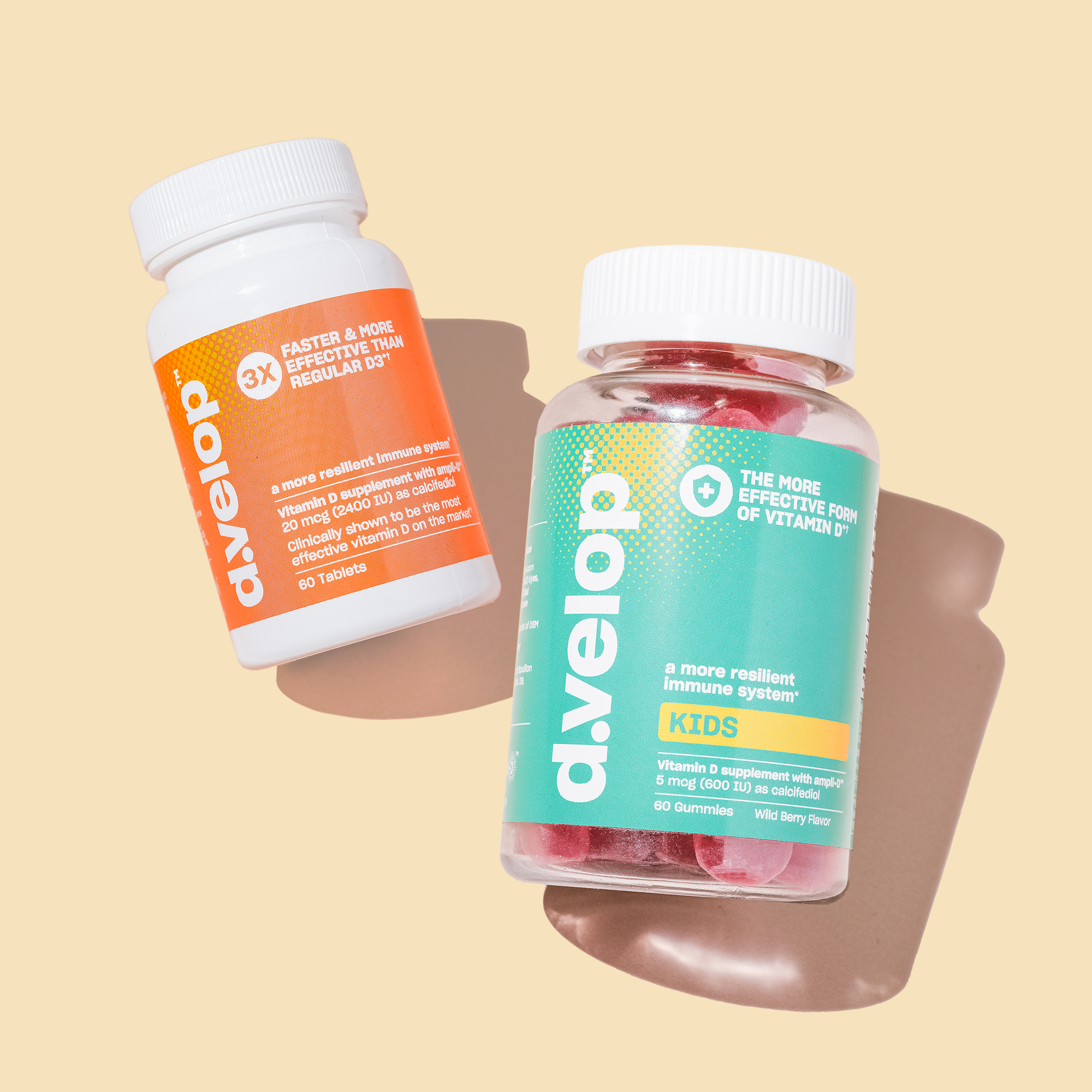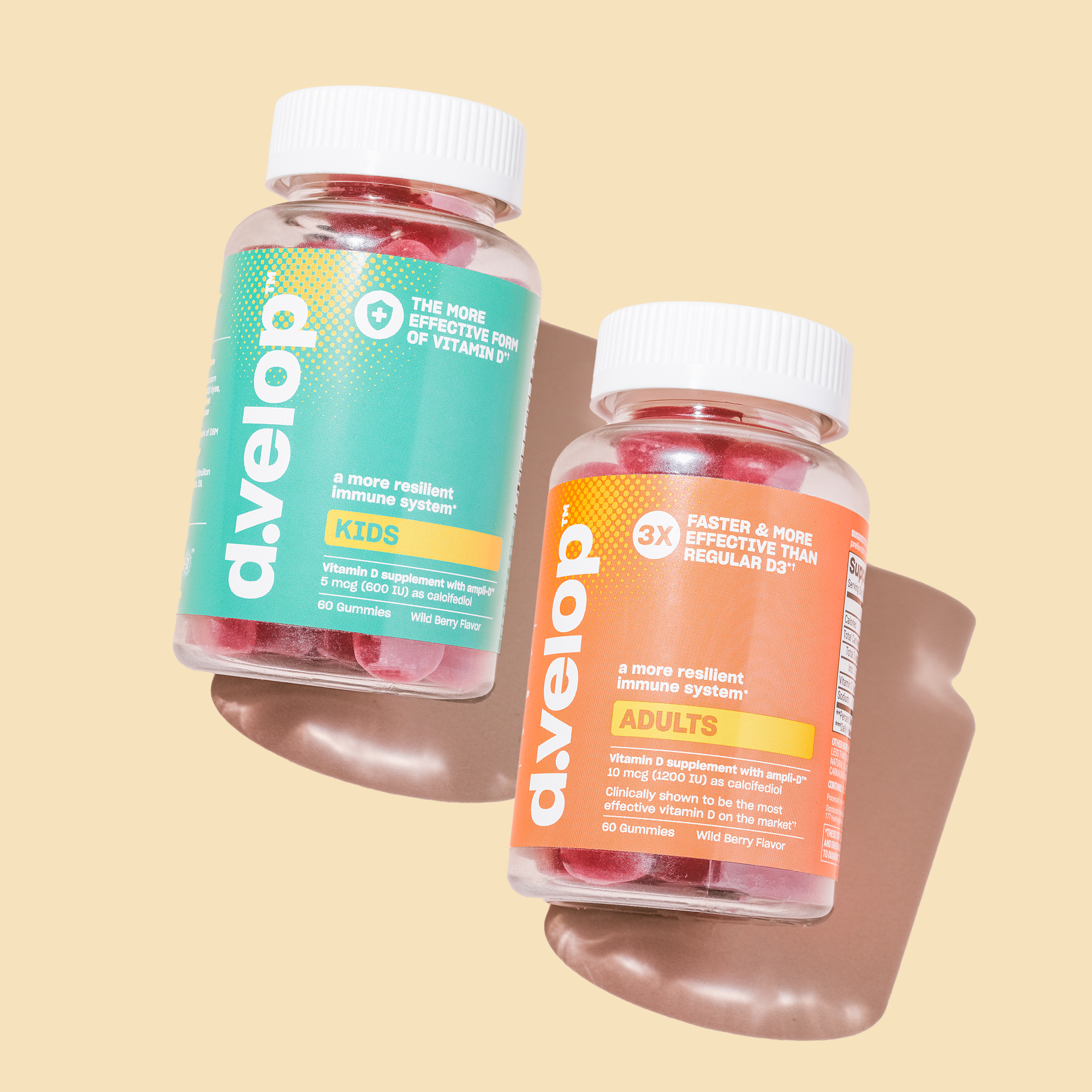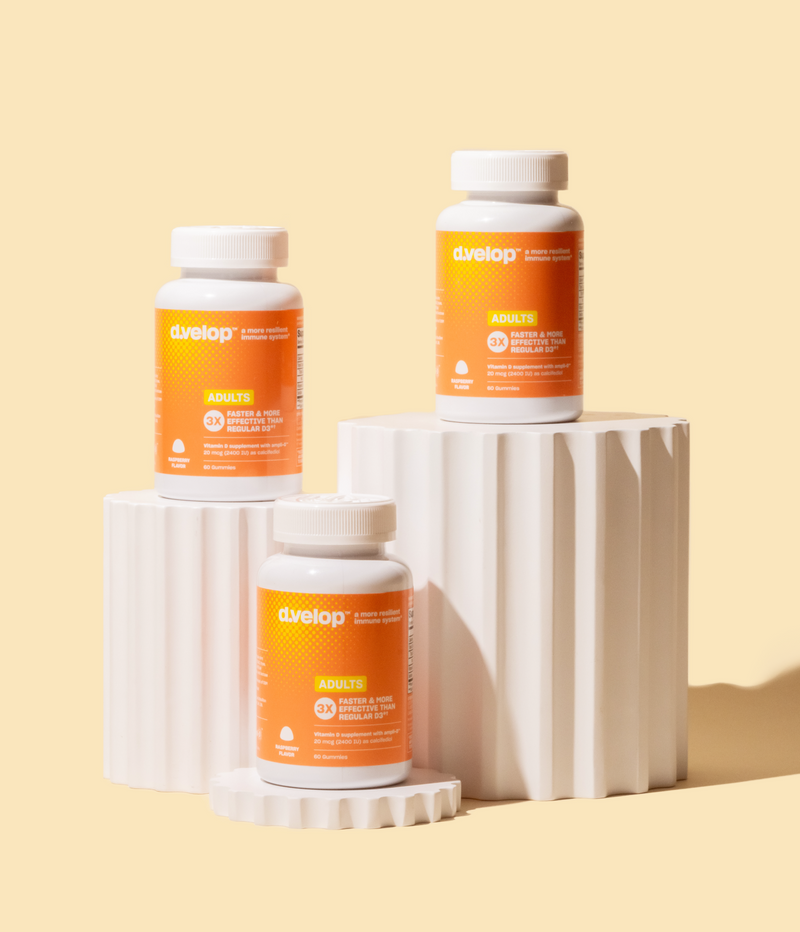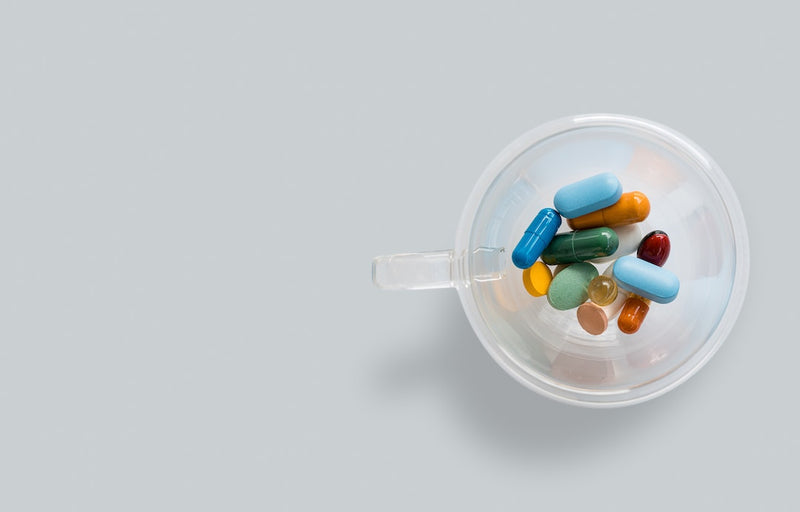The Role of Vitamin D
Vitamin D, also known as the sunshine vitamin, is an integral part of a healthy immune system as it plays a key role in many bodily processes. When it comes to vitamin D, most people think of its role in bone and muscle health but its functionality goes far beyond this.
Vitamin D is actually a hormone that is responsible for regulating hundreds of genes as well as supporting heart health, metabolism, and immune function (1). Vitamin D deficiency has been associated with increased risk of chronic diseases including diabetes, cancer, autoimmune disorders and osteoporosis (1). Ensuring your Vitamin D level is at an optimal level is important to helping these processes function at their best.
Why should you test your Vitamin D level?
There are several reasons why it is important to not only have your vitamin D level tested, but to recheck it regularly. To start, the only way to know if you are deficient in vitamin D is to check your blood levels of vitamin D. In most populations insufficient vitamin D status is a major public health issue; 88% of individuals worldwide are insufficient in vitamin D so there is a high chance of falling into this category (2).
Groups that are particularly at high risk for vitamin D deficiency include people who are housebound, community-dwelling people who are older or have disabilities, people in residential care, people with darker skin tones, people who regularly avoid sun exposure or work indoors and those who live in northern latitudes, and during the wintertime (2).
What are the optimal levels of Vitamin D?
If you have tested your vitamin D and found you are deficient, chances are you may have started taking a vitamin D supplement if recommended by your healthcare provider. So why would you need to retest your vitamin D? First, you want to ensure the supplement you are taking is raising your vitamin D to an optimal level. Another reason is to be sure that you are not getting too much vitamin D. Vitamin D is a fat-soluble vitamin which means it can build up in your system, meaning it is possible to get too much.
We think of vitamin D as the “Goldilocks” vitamin; we want to aim for vitamin D levels that are, “not too high, and not too low, we want them to be just right.” The target range of optimal vitamin D levels that we aim for is 30-60 ng/mL (3-6). Levels below 30 ng/mL have been associated with decreased immune system function (3-6). While going above 60 ng/mL has not been associated with any additional benefit (3-6).
Retesting your vitamin D level regularly is your best guide for knowing how to adjust your vitamin D supplementation to ensure you are staying in that optimal range. Clinical recommendations are to screen for vitamin D levels in at risk populations or those that are deficient and re-test every three months (7,8).
How can I test my Vitamin D level?
Testing your vitamin D is a relatively easy process that can be done simply by using a small sample of your blood. If you have a history of vitamin D deficiency, your primary care physician may take a blood sample in the office and have it sent out to be tested. With advances in technology, there are now easier ways to check your vitamin D without ever leaving the house.
If you prefer the convenience of an at-home test, an at-home vitamin D test may be right for you. The d.velop™ Vitamin D test kit is easy to use, and comes with everything you need from lancets, to alcohol swabs and a prepaid envelope to mail it in. The d.velop™ vitamin D test kit is measured from three dried blood spots using an LC/MS method, which is a gold standard technique (9). As a bonus, if you order a 3-month subscription of either d.velop™ Vitamin D or Immunity Plus, it comes with a free test vitamin D test kit.
Immune health is a top priority for much of the population. Ensuring you have an optimal vitamin D level is an integral part of immune support. The best way to be sure your vitamin D is not only in an optimal range, but is well maintained, is by retesting your vitamin D level regularly.
Author:
Laura Ward, MS, RD, LD, IBCLC
References
- Calvo et al. Vitamin D fortification in the United States and Canada: current status and data needs. Am. J. Clin. Nutr. https://academic.oup.com/ajcn/article/80/6/1710S/4690516. Published December 1, 2004. Accessed March 31, 2022.
- Mendes et al. Vitamin D status in the tropics: Is sunlight exposure the main determinant Nutr. Bull. https://onlinelibrary.wiley.com/doi/10.1111/nbu.12349. Published December 2018. Accessed March 31, 2022.
- Ginde et al. Association Between Serum 25-Hydroxyvitamin D Level and Upper Respiratory Tract Infection in the Third National Health and Nutrition Examination Survey. Arch Intern Med. https://jamanetwork.com/journals/jamainternalmedicine/fullarticle/414815. Published February 23, 2009. Accessed March 31, 2022.
- Charoenngam N, Holick MF. Immunologic Effects of Vitamin D on Human Health and Disease. Nutrients. https://www.mdpi.com/2072-6643/12/7/2097. Published July 15, 2020. Accessed March 31, 2022.
- Bischoff-Ferrari HA, et al. Estimation of optimal serum concentrations of 25-hydroxyvitamin D for multiple health outcomes. Am J Clin Nutr. https://academic.oup.com/ajcn/article/84/1/18/4633029. Published July 1, 2006. Accessed March 31, 2022.
- Heaney RP, Armas LAG. Screening for Vitamin D Deficiency: Is the Goal Disease Prevention or Full Nutrient Repletion? Ann Intern Med. https://www.acpjournals.org/doi/full/10.7326/M14-2573. Published January 20, 2015. Accessed March 31, 2022.
- Pilz S, Zittermann A, Trummer C, et al. Vitamin D testing and treatment: a narrative review of current evidence. Endocr Connect. 2019;8(2):R27-R43. doi:10.1530/EC-18-0432
- Dawson-Hughes B. Patient education: Vitamin D deficiency (Beyond the Basics) - UpToDate. UpToDate. Published July 6, 2021. Accessed May 11, 2022. https://www.uptodate.com/contents/vitamin-d-deficiency-beyond-the-basics
- Zelzer S, Goessler W, Herrmann M. Measurement of vitamin D metabolites by mass spectrometry, an Analytical Challenge. Journal of Laboratory and Precision Medicine. https://jlpm.amegroups.com/article/view/4620/html#:~:text=Abstract%3A%20Liquid%2Dchromatography%2Dtandem,advantage%20measuring%20several%20metabolites%20simultaneously. Published December 5, 2018. Accessed March 31, 2021
